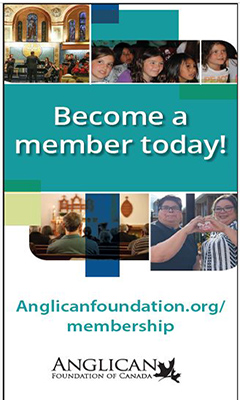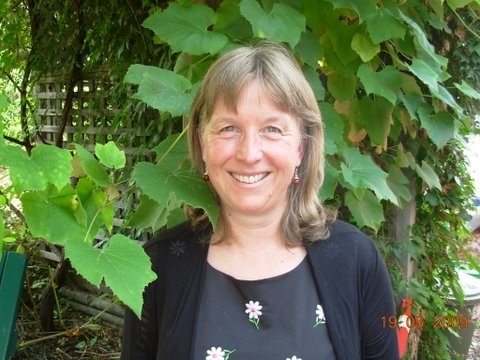Because we’ve just come through Holy Week, it strikes me that the way to be church for people who are grieving climate change, grieving anything, is to have the courage to stay close to the cross. For if we are willing to stay there, close to suffering, grounded in our hope and in mystery, it becomes possible to stay close to those who are grieving.
It’s not easy to do. Not many people did or can.
The women who stayed present with Jesus through his suffering and death on the cross did so out of love. They didn’t know about the resurrection. They stayed without knowing what lay ahead, what might be transformed. They probably felt helpless, a terrible feeling. Yet they stayed there in that place of agony out of love and compassion for someone they loved who was suffering. They stayed so he would not be alone in that suffering.
And we, in our time, on the other side of the cross know that what seemed to be a dead end was transformed, completely. And we also know that it is not for us to know how God will act in the world. Our call is to be with suffering, with “no knowing” — yet as Christians we hold hope with and for others.
Climate change is here. Those who have the courage to face it feel grief at what is already lost and seems likely to be. If we can create a space to simply be with that grief, in ourselves and in others, we allow God in, to transform us and the situation, without knowing how it will be. By witnessing and staying close to our own grief and close to others who are grieving, we change the situation.
We may not change the outcome as we imagine it, but we can change the moment — the experience for those for whom grieving alone might lead to despair and desperation. And so, by staying present and close, we become more inclusive as a community, more able to be present to life with all its pain, all its wonder, all our unknowing and all our love for this world. And when we allow grief to move, it becomes possible for us to move, to act. Grief, then, can become the fuel for action. As with every experience and emotion, God will compost what we are able to release and let go of.
And so it is in this present moment, only this moment, with our grief, anxiety and fear, that God can change us and the world.
When someone is at the edge, overcome with grief, it is that edge that is bound to another edge that will greet it. There is always someone or something on the other side. But, in my experience, there are no shortcuts. We can try, but we can’t trick God, ourselves, or others by promising a happy ending, or pretending to know what that other edge will be.
We have to build up our muscle of love by standing at the cross, learning to bear the pain, holding it gently, listening to what it has to teach us and being willing to be changed by it, willing to be touched by another’s suffering.
As a mother, I can barely bear to imagine Jesus’ mother, Mary, in that little group of women watching and loving her son through his suffering. That is the kind of courage we are called to as church.
We can learn how to do this. It takes practice. It’s called “holding space.” It’s not trying to make things better or assuming to know what another person “should do.” Rather, it’s the practice of sitting with another’s grief or pain and remembering to breathe, to notice, to be compassionate — to give space to that grief.
Grief transforms us; grief informs us; grief can guide us. It can bind us together at a time when self-centredness, self-determination and consumerism have driven us apart. And grief can show us a new way. The way forward is through our relationships — with God, self and neighbour. Learning to hold space for what is, so that what was, is and ever shall be is allowed space to breathe and to become. And to recreate the Earth.




